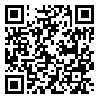Volume 26, Issue 5 (2024)
JAST 2024, 26(5): 1143-1159 |
Back to browse issues page
Download citation:
BibTeX | RIS | EndNote | Medlars | ProCite | Reference Manager | RefWorks
Send citation to:



BibTeX | RIS | EndNote | Medlars | ProCite | Reference Manager | RefWorks
Send citation to:
Irik H A, Kaymaz E, Neslihan Samutoglu H, Fikret GURKAN O, Unlukara A. Effects of Different Irrigation Levels on Sugar Beet and Potential Use of Crop Water Stress Index in
Irrigation Scheduling. JAST 2024; 26 (5) :1143-1159
URL: http://jast.modares.ac.ir/article-23-68108-en.html
URL: http://jast.modares.ac.ir/article-23-68108-en.html
1- Department of Biosystems Engineering, Faculty of Agriculture, University of Erciyes, Kayseri, Türkiye. , haliirik42@gmail.com
2- Department of Research and Development, Kayseri Sugar Beet Factory, Kayseri, Türkiye.
3- Department of Research and Development, Kayseri Sugar Beet Factory, Kayseri, Türkiye
4- Department of Biosystems Engineering, Faculty of Agriculture, University of Erciyes, Kayseri, Türkiye.
2- Department of Research and Development, Kayseri Sugar Beet Factory, Kayseri, Türkiye.
3- Department of Research and Development, Kayseri Sugar Beet Factory, Kayseri, Türkiye
4- Department of Biosystems Engineering, Faculty of Agriculture, University of Erciyes, Kayseri, Türkiye.
Abstract: (1298 Views)
With the increasing world population, global warming, and climate change, water scarcity significantly limits water use in crop production. Therefore, timely and accurate determination of water stress is very important for the correct and effective management of existing water resources and minimizing harmful effects on crop production. Two years of experiments were conducted in the water-limited region in Türkiye to investigate the possible use of the Crop Water Stress Index (CWSI) as a remote sensing technology in sugar beet irrigation scheduling. Four different Irrigation levels (I50: 50% deficit, I75: 25% deficit, I100: full irrigation, and I125: 25% excess irrigation) were applied to sugar beet by drip irrigation system. The amount of applied irrigation water and crop evapotranspiration varied between 238-540 and 350-580 mm in 2021, and between 324-807 and 502-829 mm in 2022. In both years, the highest beed yields were obtained from I100 treatments (83 and 130 t ha-1) and the lowest from I50 treatments (66.7 and 67.4 t ha-1). Water Productivity (WP) and Irrigation Water Productivity (IWP) in both years decreased significantly by excessive irrigation. CWSI values ranged between 0.16-0.98 in 2021 and between 0.02-0.71 in 2022. CWSI was significantly related to yield and Leaf Area Index (LAI). According to the results, CWSI could be used successfully in sugar beet irrigation scheduling and yield estimation.
Article Type: Original Research |
Subject:
Irrigation and Drainage
Received: 2023/03/16 | Accepted: 2023/07/16 | Published: 2024/09/14
Received: 2023/03/16 | Accepted: 2023/07/16 | Published: 2024/09/14
Send email to the article author
| Rights and permissions | |
 |
This work is licensed under a Creative Commons Attribution-NonCommercial 4.0 International License. |







